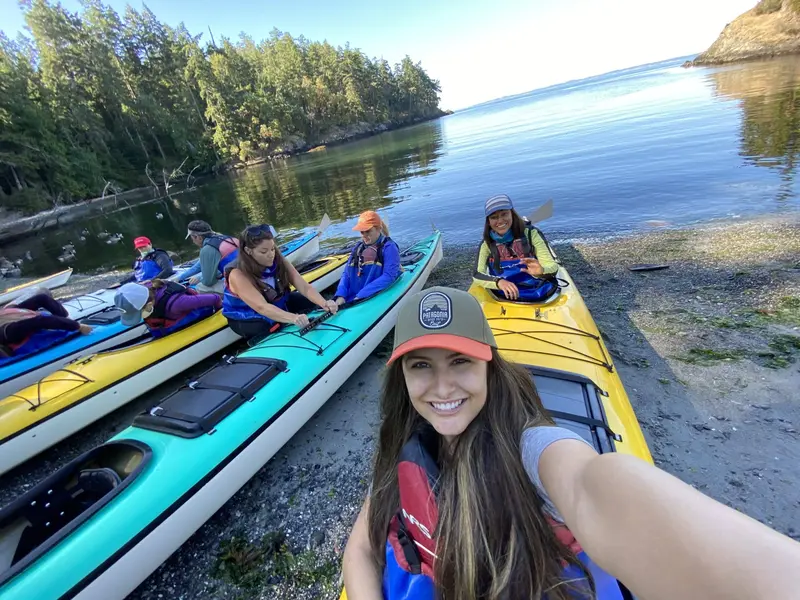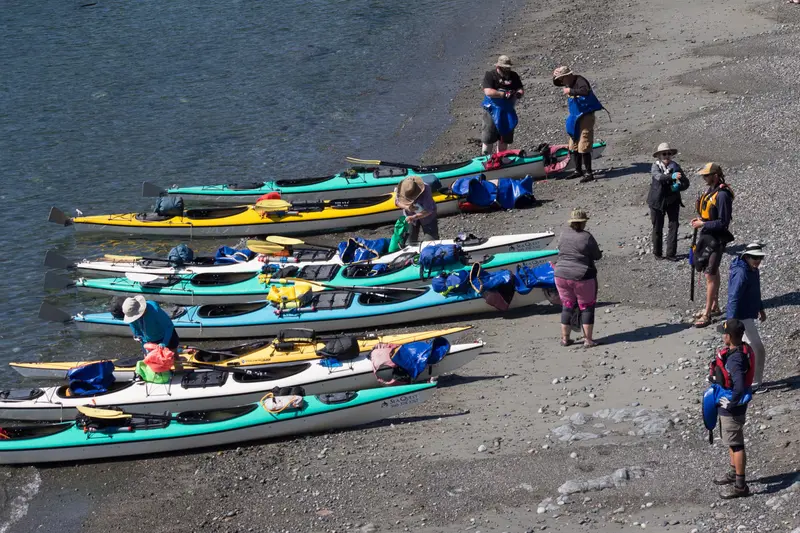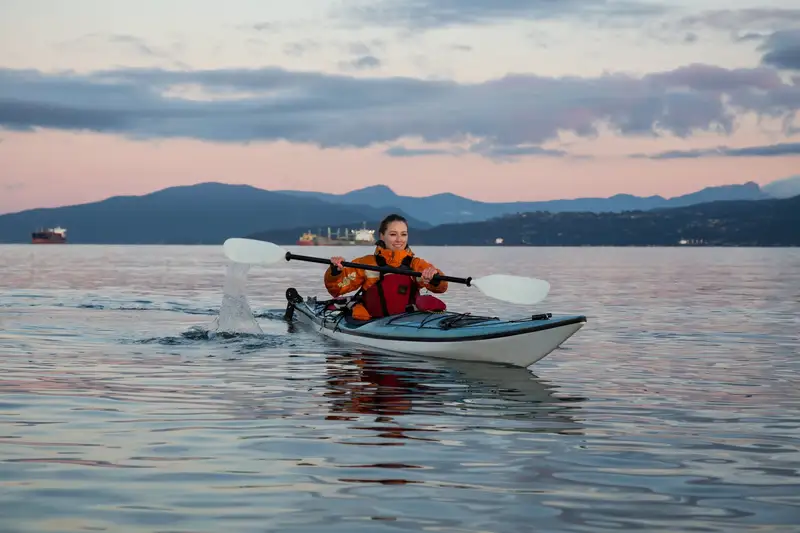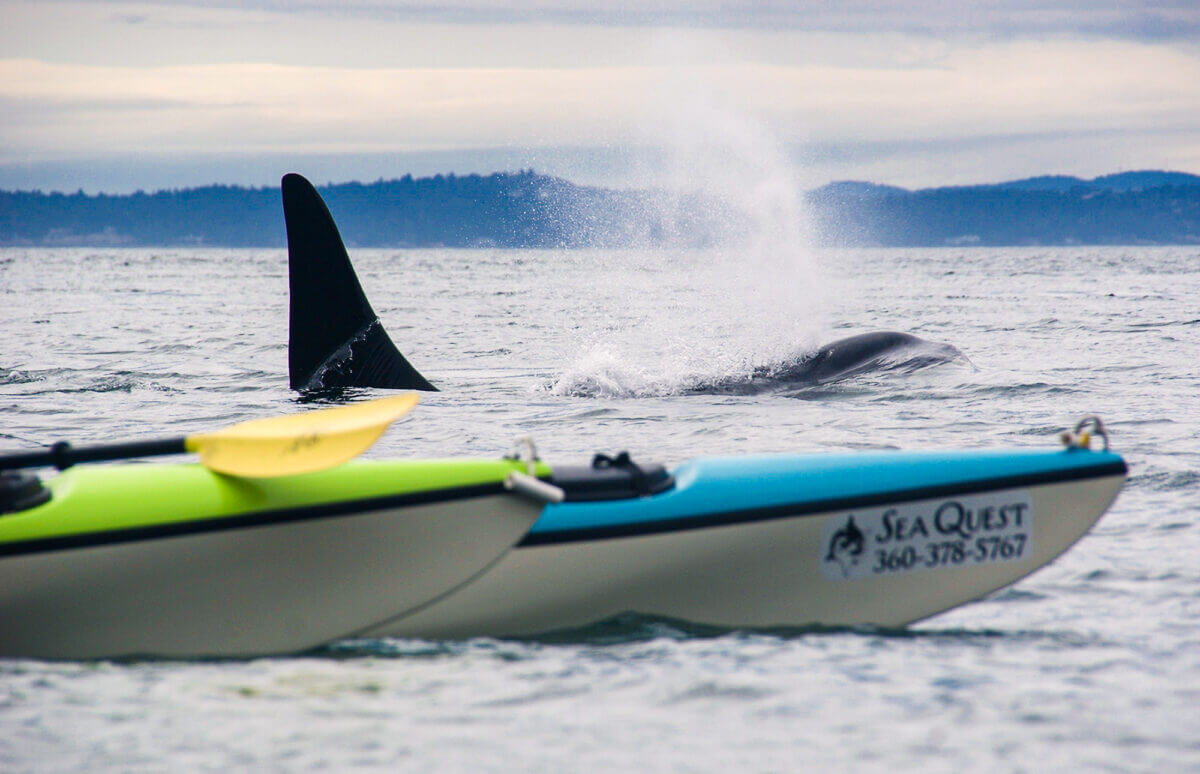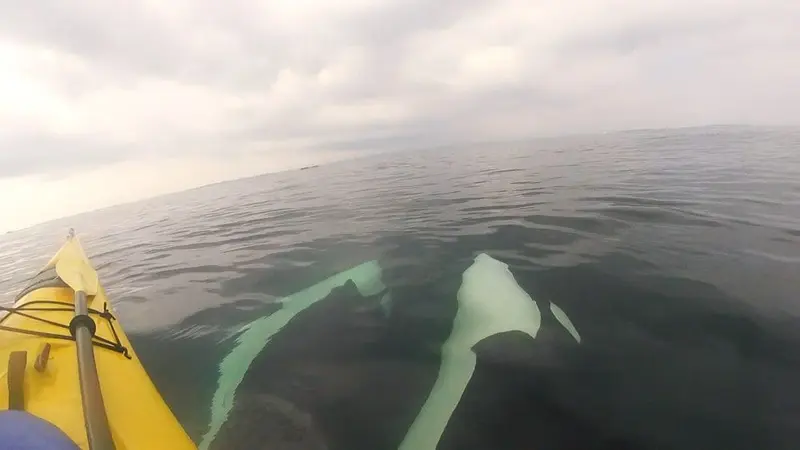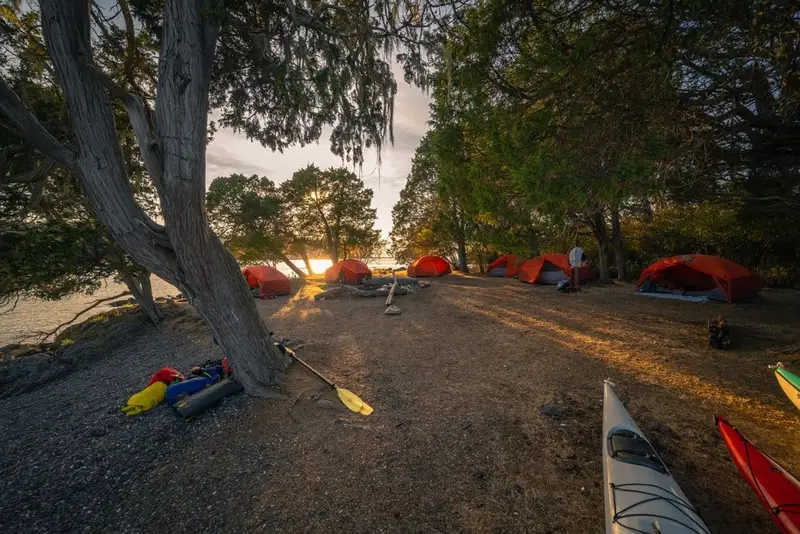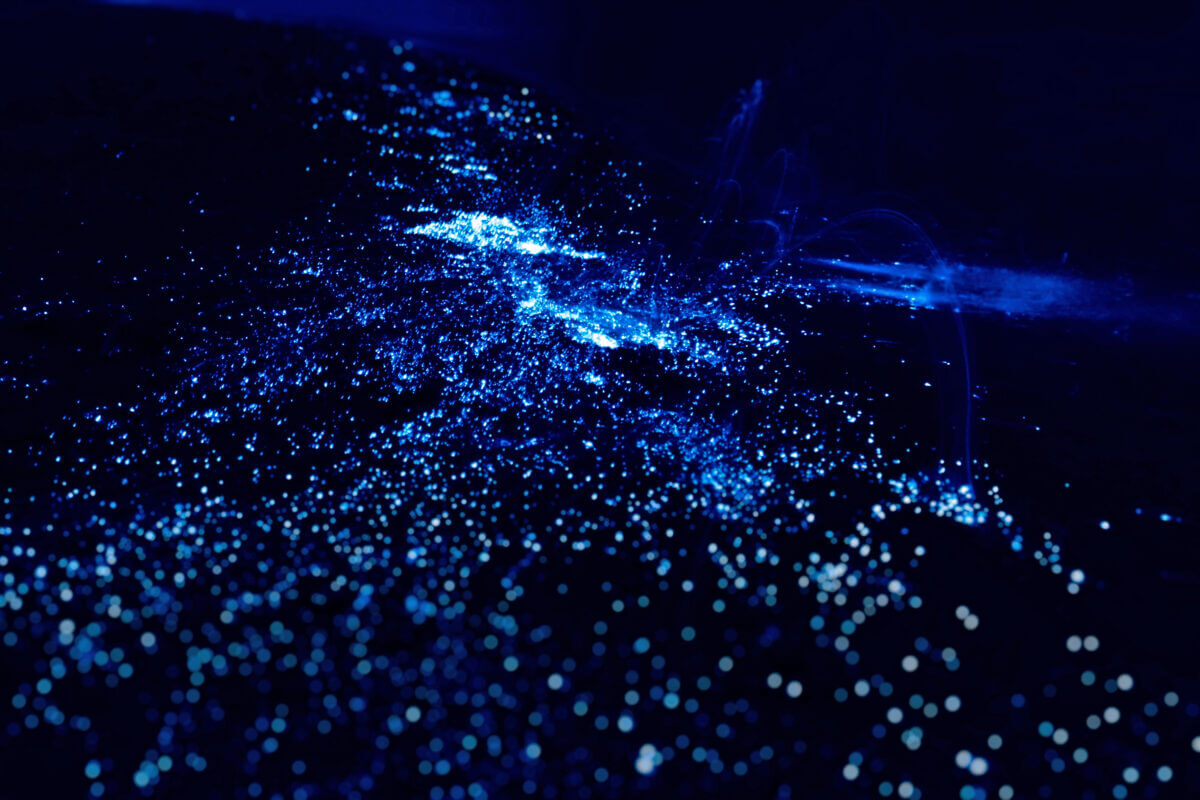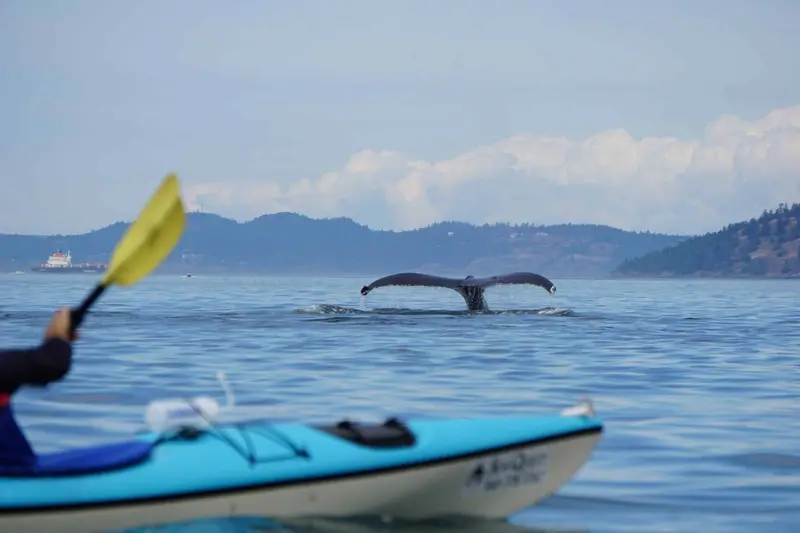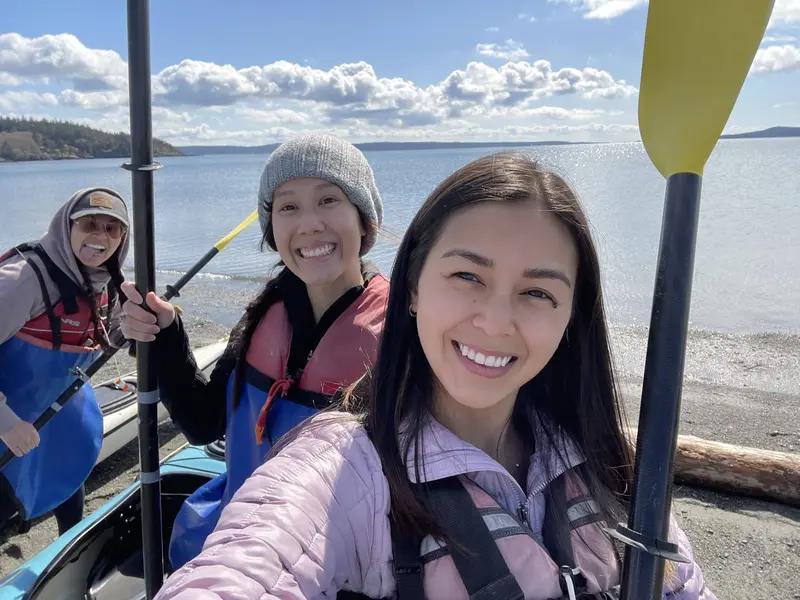Our last blog entry discussed the dangers from a new study that involves dart tagging the resident orca whales in Washington – the same friendly orcas we enjoy watching on our kayaking tours in the San Juan Islands. Despite widespread criticism, the NOAA research team darted the first orca whale on February 20. The target was J-26 (aka “Mike”, named after deceased pioneering killer whale biologist Michael Bigg) a 21 year old who is usually found close to his 40 year old mother J-16 “Slick” and two younger sisters.
The satellite tag, sporting nasty double harpoon tips, was supposed to allow continuous tracking of J-pod killer whales (an endangered family of salmon-eating residents) to learn more about their movements, habitat use and feeding behavior. The tag only worked for 3 days instead of the planned 3 months. Now Mike is cruising our San Juan Islands kayaking tour routes with two nasty holes in his fin that served no purpose and put him at risk of infection.
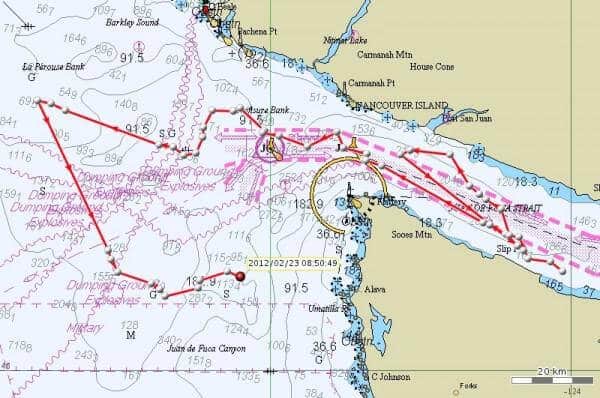
The agency that approved this study is the same one that has accused kayak tours companies such as ours of threatening the whales’ health by respectfully and silently drifting across the water’s surface in their company. Meanwhile, this agency has approved for use on our San Juan Islands kayaking tour routes the following: military bombs and sonar, bulk freighters, and commercial fishing fleets whose nets steal the orcas’ already rare food supply and put them at risk of drowning.
NOAA is a “scientific” federal agency, but they seem incapable of making rational decisions when it comes to the welfare of the orca whales they are legally responsible for saving. The reality is that kayakers are an easy target to scapegoat and serve as the perfect “red herring” diversion to what really needs to get done. Restoring damaged salmon streams is hard work, costs money, and often steps on political toes. But it’s long overdue and essential to our entire ecosystem.
Unfortunately, it seems we can’t rely on our government agencies in Washington to take a stand against entrenched financial or military-industrial interests. The fishing fleet allowed by NOAA to compete with killer whales for endangered salmon right in the heart of the proposed orca sanctuary is financed by big bankers. And the weapons-makers are always clamoring to test and sell us more of their deadly wares. We can only hope that NOAA comes to its senses soon and takes real and effective action to save our orca whales. The whales can’t wait much longer.


